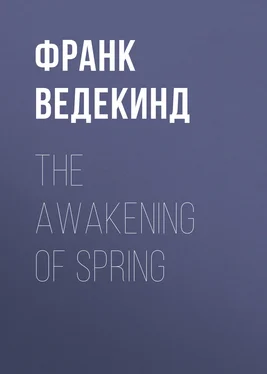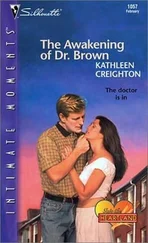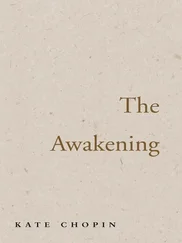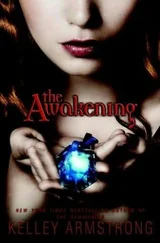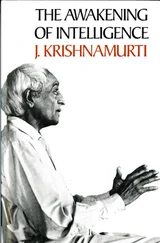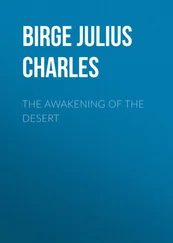Франк Ведекинд - The Awakening of Spring
Здесь есть возможность читать онлайн «Франк Ведекинд - The Awakening of Spring» — ознакомительный отрывок электронной книги совершенно бесплатно, а после прочтения отрывка купить полную версию. В некоторых случаях можно слушать аудио, скачать через торрент в формате fb2 и присутствует краткое содержание. Жанр: foreign_dramaturgy, Драматургия, foreign_antique, foreign_prose, на английском языке. Описание произведения, (предисловие) а так же отзывы посетителей доступны на портале библиотеки ЛибКат.
- Название:The Awakening of Spring
- Автор:
- Жанр:
- Год:неизвестен
- ISBN:нет данных
- Рейтинг книги:4 / 5. Голосов: 1
-
Избранное:Добавить в избранное
- Отзывы:
-
Ваша оценка:
- 80
- 1
- 2
- 3
- 4
- 5
The Awakening of Spring: краткое содержание, описание и аннотация
Предлагаем к чтению аннотацию, описание, краткое содержание или предисловие (зависит от того, что написал сам автор книги «The Awakening of Spring»). Если вы не нашли необходимую информацию о книге — напишите в комментариях, мы постараемся отыскать её.
The Awakening of Spring — читать онлайн ознакомительный отрывок
Ниже представлен текст книги, разбитый по страницам. Система сохранения места последней прочитанной страницы, позволяет с удобством читать онлайн бесплатно книгу «The Awakening of Spring», без необходимости каждый раз заново искать на чём Вы остановились. Поставьте закладку, и сможете в любой момент перейти на страницу, на которой закончили чтение.
Интервал:
Закладка:
Certainly there is no trace of the gentle romanticism which one finds in some of the other modern German realists. Gerhart Hauptmann can turn from the grim task of dramatizing starvation, as he does in “Die Weber,” to indulge in the naïve Christian symbolism of “Hannele,” or the mythological poetry of “Die Versunkene Glocke.” Even the iconoclast Strindberg writes romantically at times, and gives us something resembling Maeterlinck; but when Wedekind departs from pure realism his fancy creates a Gothic nightmare of horrors, peopled with such terrifying creatures as the headless suicide wandering amid the graves.
Wedekind's kinship to the dramatists of the “domestic tragedies” is shown clearly in the tragedy “Musik,” which deals with a phase of music study only too common in Germany. It is asserted that of the thousands of students of music in that country not one in a hundred amounts to anything artistically, while of those who master their art not one in a thousand is capable of profiting financially by it. It is this condition of affairs which gives additional importance to this recent work of Wedekind.
“Musik” is described by the author as a depiction of morals in four pictures (“Sittengemälde in vier Bildern”), to each of which he has given a separate title, a method which enables him to indulge in his trick of applying a pretty, inoffensive name to a tragic subject, as he does in picture two of this series, which he calls “Behind Swedish Curtains,” and which represents the interior of a jail. The curtains to which the playwright refers are the iron bars of the prison.
The central character in “Musik,” Klara Huhnerwadel, is a neurotic girl, whose mad love for her singing teacher has entangled her in the meshes of the legal net drawn to catch Madame Fischer, a notorious character in real life, who actively engaged the attention of the German police authorities not long ago. At the instigation of her lover, Josef Reissner, and with money supplied by Else Reissner, Josef's wife, Klara flees to Antwerp, only to find existence insupportable there, and to return to a life in jail which drives her to the edge of insanity. Released from imprisonment, she continues her relationship with her teacher until their association becomes public scandal, and then takes refuge in the country, intending to devote her life to her illegitimate child. The child dies, however, and there descends upon Klara what Wedekind describes as “the curse of the ridiculous.” In an outburst of frightful anguish she is filled with “a nameless loathing of the horrible fate of being racked to death by bursts of sneering laughter,” and raves in hysteria by the bedside of her dead baby.
Upon this final picture Wedekind has expended his full power of biting irony. Josef Reissner, the cause of Klara's misfortune, is thanked by her mother for all he has done for her, while Franz Lindekuh, a literary man, whose rôle in the play has been that of a good Samaritan, is accused as the author of her disgrace. During previous tribulations Reissner has assured Klara repeatedly that her suffering would develop her artistic temperament and result in bringing her fame as a singer. At the end, when Klara, after undergoing imprisonment, exile, poverty, public disgrace and the loss of her beloved child, finds herself bereft of even Reissner's regard, she is led away in a stupor from her miserable attic. It is then, in reply to a wish of the physician that she will suffer from no lasting mental disturbance, that Lindekuh preludes the fall of the curtain by the caustic remark: “She'll be able to sing a song.”
Here, truly, is a tragedy! There can be no doubt but what Wedekind has handled it in a powerful fashion. He sounds the tragic note upon the first rising of the curtain, a note which grows in intensity until the auditor wonders if it is possible for it to reach higher–and yet it swells.
“Frühlings Erwachen” is the best known of the Wedekind dramas and the most original in its treatment. It has peculiarities, however, which make it somewhat difficult to give as a stage performance. To see what this German playwright can do on more conservative lines, and to appreciate his mastership of the conventional technique of the stage, one must turn to the dramas of modern life in which he handles such subjects as socialism, woman's emancipation, naturalism and divorce; frequently, it must be confessed, in a way which Americans refuse to tolerate upon the stage, despite their fondness for the same sort of information when supplied by the newspapers.
Selecting his characters from all classes of life, Wedekind brings to their making the knowledge of life as the police reporter sees it plus the science of a skilled psychologist. There is something sardonic about his art. He does not appear to sympathize with any of his characters, but to stand outside of life making note of the foibles and failures of his fellow-creatures. His irony appears in the most tragic places, and his dialogue, wrought with a cunning which requires strict attention on the part of the auditor if its subtleties would be grasped, serves Wedekind as an instrument for dissecting souls which he wields quite regardless of the mess he may make in the operating room.
None knows better how to show the peculiarities of a neurotic woman, or to betray a man's weakness by a few short sentences. The demonstration is direct and thorough, and we watch it fascinated, as we might the work of a skilled vivisectionist. When the job is finished we feel convinced that Wedekind's personages are real, although many of them are not the kind we enjoy meeting in actual life. We do meet them daily, nevertheless, tolerating them chiefly by our own polite habit of ascribing imaginary virtues to those that possess them not.
Take that curious comedy, “Der Marquis von Keith,” as an example of Wedekind's skill as a psychologist. “Comedy” the author names it himself, but he might just as well have called it a tragic farce, so thoroughly has he mingled the laughable with the tragic. The protagonist of this peculiar play (the underlying tone of which has been likened musically to a Dies Irae written by Offenbach) is the illegitimate son of a teacher of mathematics and a gypsy trull, an adventurer who keeps on the shady side of the law, and who, despite his practical view of life in general, is an idealist in several particulars. His title of Marquis von Keith is merely a nom de guerre , and his attempts to obtain a fortune involve methods which the world acclaims as evidences of wonderful financial ability, or stigmatizes as the practices of a sharper, according to their success or failure. Resourceful, energetic, unhampered by vain regrets or restrictions of conventional morals, wasting not a moment upon a scheme which has proved unprofitable, von Keith is a forceful personage who manages to pass in Munich as a wealthy American, even when his pockets are empty and the sheriff is at the door. His own view of life is embodied in his definition of sin as “the mythological symbol for bad business,” and his accompanying explanation that good business can be conducted only by a person accepted by the existing order of society.
In other words, von Keith is a hypocrite for revenue only, but never is deceived concerning his own personality.
The play deals with von Keith's scheme to build an amusement hall, to be known as “The Fairy Palace.” He applies himself so sedulously that his plans are on the eve of realization, when suddenly he finds himself ousted from the management of his own enterprise by the very men he has interested in it.
Now all this is comedy, of course, but Wedekind is not to be deprived of his predelection for the minor key. He introduces the tragic tone in this instance right in the final scene, when von Keith is confronted by the dead body of his common-law wife, Molly Griefinger. In some respects this episode resembles a travesty upon the final act of Sudermann's “Sodoms Ende;” but it is characteristic of Wedekind that he makes Molly kill herself because she fears von Keith's success will estrange her from her husband, and that her suicide is followed directly by the failure of von Keith's well-laid plans, just as they seemed about to mature.
Читать дальшеИнтервал:
Закладка:
Похожие книги на «The Awakening of Spring»
Представляем Вашему вниманию похожие книги на «The Awakening of Spring» списком для выбора. Мы отобрали схожую по названию и смыслу литературу в надежде предоставить читателям больше вариантов отыскать новые, интересные, ещё непрочитанные произведения.
Обсуждение, отзывы о книге «The Awakening of Spring» и просто собственные мнения читателей. Оставьте ваши комментарии, напишите, что Вы думаете о произведении, его смысле или главных героях. Укажите что конкретно понравилось, а что нет, и почему Вы так считаете.
